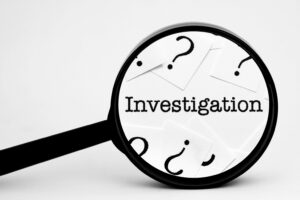The 31st January Self Assessment deadline is fast approaching—and if you haven’t filed your return yet, now is the time to act. Delaying could mean instant penalties and added interest on unpaid tax. The solution? Book a self assessment filing service for personal taxes today to stay ahead.
Whether you’re self-employed, a landlord, or receive additional untaxed income, filing your UK Self Assessment Online isn’t just about avoiding fines—it’s about taking control of your finances, claiming eligible deductions, and securing peace of mind before the new tax year begins.
Why Act Now?
Filing your tax return early helps you:
-
Avoid late filing penalties on SA100 forms, which start at £100 and increase over time
-
Plan your payments on account more effectively
-
Receive quicker tax refunds if you’re owed money
-
Access support in case of queries or documentation issues
Don’t wait until the system slows down near the deadline—submit your Self Assessment return on time and take the stress out of tax season.
Who Needs to File?
You must complete a Self Assessment tax return if you:
-
Earn more than £1,000 as a sole trader or self-employed professional
-
Are a landlord with rental income
-
Receive dividends, foreign income, or savings interest
-
Are a director of a limited company
-
Claim child benefit but your income is over £50,000
If any of these apply, you’re legally required to file—on time and accurately.
Filing Your UK Self Assessment Online: Step-by-Step
1. Register with HMRC
New to Self Assessment? You’ll need to register online and wait for your Unique Taxpayer Reference (UTR) before you can file.
2. Gather the Right Documents
This includes:
-
Income records (invoices, bank statements)
-
Employment or pension information (P60, P45)
-
Investment income, rental records, and dividend certificates
-
Records of allowable expenses
3. Log in and Start Your SA100 Form
Using your Government Gateway ID, complete the SA100 and any supplementary forms relevant to your circumstances.
4. Submit and Pay
Double-check your return before submitting. Make your payment or set up a schedule for any due payments on account to avoid interest charges.
Why Hire a Professional?
While filing online is straightforward for some, the rules around tax deductions, allowances, and multiple income sources can get tricky. That’s why many individuals hire an accountant to handle payments on account, ensure accuracy, and avoid compliance issues.
An expert tax advisor can also help reduce your bill legally and spot opportunities to claim relief you might otherwise miss.
Common Pitfalls to Avoid
-
Leaving filing to the last minute
-
Forgetting to report additional income streams
-
Miscalculating expenses or not keeping receipts
-
Ignoring payments on account
-
Missing the deadline and triggering automatic penalties
Avoid these by using a trusted tax service and acting early.
Ready to File? Take These Final Steps
-
Check your UTR and login details are correct
-
Prepare all necessary documentation
-
Speak to a tax expert if you’re unsure
-
Use a reliable online portal or service provider
-
Submit before 31 January and pay any owed taxes promptly
UK Self Assessment Online Filing doesn’t have to be overwhelming. By acting now, you not only protect yourself from fines but take control of your tax year before it controls you.
Whether you want to book a self assessment filing service for personal taxes, get help avoiding late filing penalties on SA100, or hire an accountant to handle your payments on account, the smartest move you can make is to submit your Self Assessment return on time—before the deadline becomes a disaster.



